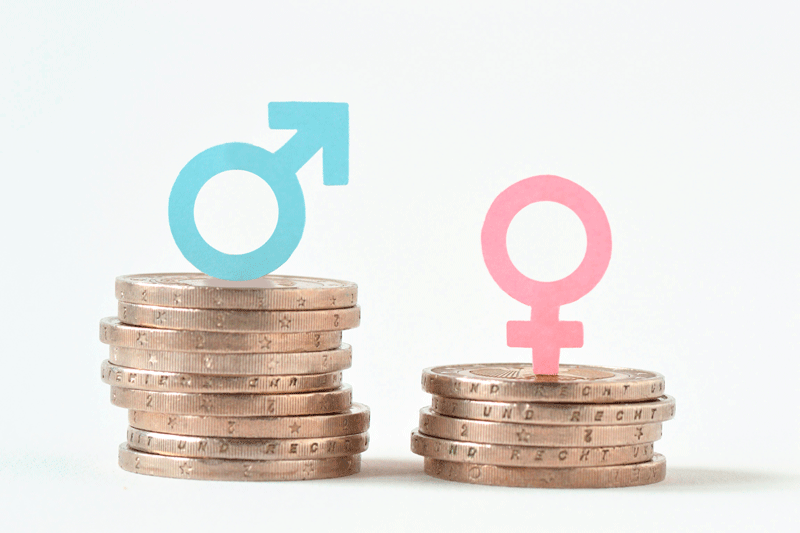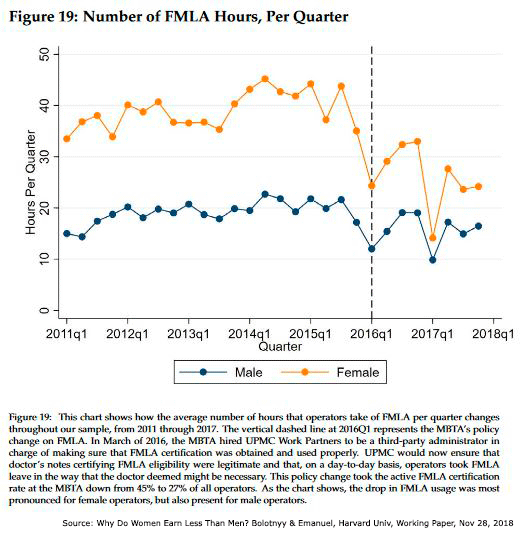
by Lil Tuttle
The gender wage gap is all about the choices women make, not some mythical patriarchal bias against women. So finds a new Harvard University working paper entitled “Why Do Women Earn Less Than Men?” released November 28, 2018. Evaluating confidential employee data from the Massachusetts Bay Transportation Authority (MBTA) for the years 2012 through 2017, the authors concluded:
We show that a gender earnings gap can exist even in a controlled environment where work tasks are similar, wages are identical, and tenure dictates promotions. The gap of $0.89 in our setting … can be explained entirely by the fact that, while having the same choice sets in the workplace, women and men make different choices. Women use the Family Medical Leave Act (FMLA) to take more unpaid time off than men and they work fewer overtime hours at 1.5 times the wage rate.
At the root of these different choices is the fact that women value time and flexibility more than men. Men and women choose to work similar hours of overtime when it is scheduled a quarter in advance, but men work nearly twice as many overtime hours than women when they are scheduled the day before. Using W-4 filings to ascertain marital status and the presence of dependents, we show that women with dependents – especially single women – value time away from work more than men with dependents.
 One interesting aspect of this study involved the effects of two major policy changes implemented by MBTA in 2016 and 2017 “to reduce absenteeism and overtime expenditure.” One policy “made it harder to take unpaid time off with FMLA [Family Medical Leave Act] and another that made it harder to be paid at the overtime rate.”
One interesting aspect of this study involved the effects of two major policy changes implemented by MBTA in 2016 and 2017 “to reduce absenteeism and overtime expenditure.” One policy “made it harder to take unpaid time off with FMLA [Family Medical Leave Act] and another that made it harder to be paid at the overtime rate.”
The tighter FMLA-usage policy had the most pronounced impact on females, as the graphic from the study reveals.
As the authors note, while the policy change reduced the gender earnings gap, it came at the cost of reduced flexibility and choice for women in the workplace.
While the policy changes reduced the gender earnings gap from $0.89 to $0.94 and made it harder for operators to trade off regular hours for overtime, they also decreased women’s well-being by further constraining the work environment [emphasis added].
The question going forward is whether the “gender pay gap” is worth closing if it means women will be denied the choices and flexibility they value in the workplace more than perfect gender pay parity.

